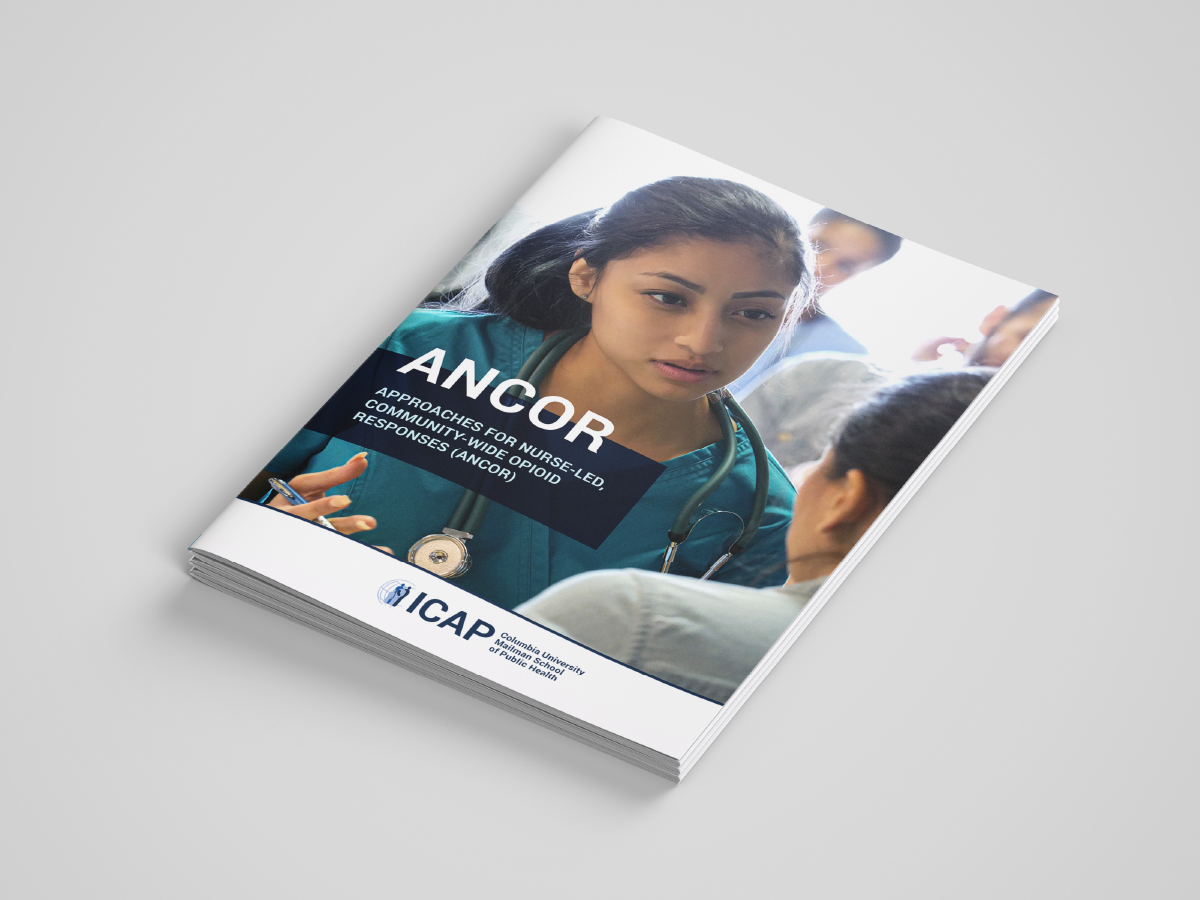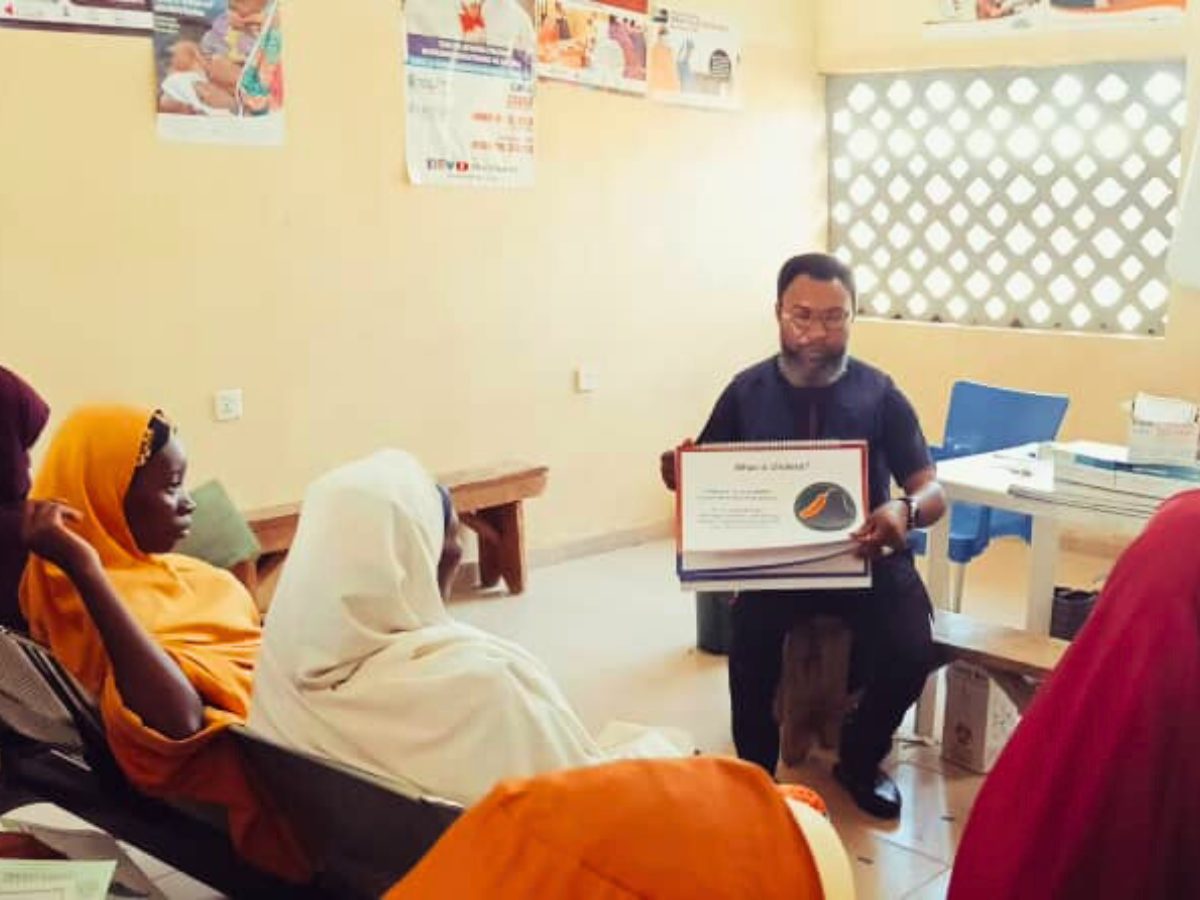Across the United States, persistently high rates of opioid addiction and deaths from overdose have devastated individuals and families, created an unprecedented burden for health care systems and local governments, and left communities struggling to respond. Every day, more than 130 people in the United States die after overdosing on opioids.
In direct response to this ongoing health crisis, ICAP at Columbia University, a leader in global health solutions has created a practical, results-driven toolkit to equip nurses and other frontline health workers with the essential information and tools they need to care for people and communities affected by opioid use disorders.
In conjunction with International Overdose Awareness Day, ICAP has released the Approaches for Nurse-led, Community-wide Opioid Responses (ANCOR) toolkit – a valuable new resource designed to provide nurses and other health care professionals working on the frontlines of the opioid epidemic with up-to-date information on evidence-based tools and practices that can be immediately applied to their interactions with individual patients, their families, and the community at large.
“In the U.S., nurses stand as the largest and most trusted group of health care providers, working in a variety of settings and performing wide-ranging functions that include direct care, care coordination and program management, health education and health promotion, advocacy, and executive leadership. As such, they are uniquely positioned to catalyze and lead community-wide responses to the opioid crisis,” said Susan Michaels-Strasser, PhD, MPH, RN, FAAN, ICAP’s senior director of Human Resources for Health Development. “The ANCOR toolkit aims to amplify the multifaceted role of nurses in their communities and unleash their unparalleled potential to lead the type of transformational change required to turn the tide on the U.S. opioid crisis.”
Written by a nurse-led team of physicians, social scientists and public health professionals, and leveraging ICAP’s nearly two decades of experience and expertise in training and educating frontline health care workers, the ANCOR toolkit provides a variety of key resources for health care workers, including real-world examples of promising practices, tools to improve work, and a framework for developing a comprehensive response to the opioid crisis in the community.
While produced for nurses and other health care workers to engage in the opioid response, the toolkit can also benefit a wide range of other professionals involved in confronting the opioid epidemic, including first responders, social workers, doctors, pharmacists, and others. Community leaders and policymakers looking to understand and address the opioid epidemic should also find this toolkit useful.
International Overdose Awareness Day is a global event held on 31 August each year and aims to raise awareness of overdose and reduce the stigma of a drug-related death. It also acknowledges the grief felt by families and friends remembering those who have died or had a permanent injury as a result of drug overdose. ICAP’s release of the toolkit on this day aims to help raise awareness of this public health threat and provide a novel action-oriented tool in the fight to end opioid addiction and its preventable consequences.
The ANCOR toolkit is available free for download.
The ANCOR toolkit draws upon the insights and knowledge of the nurses and other public health and safety professionals who generously shared their time and perspectives with our team. It also reflects the experience, expertise, and contributions of multiple ICAP at Columbia University staff.
The ANCOR toolkit was funded by Johnson & Johnson, in alignment with their long-term commitment to supporting nurses on the frontlines of health care. The funder had no involvement in research or content development for this toolkit. Its ideas and content are solely the product of ICAP.
A global health leader since 2003, ICAP was founded at Columbia University with one overarching goal: to improve the health of families and communities. Together with its partners—ministries of health, large multilaterals, health care providers, and patients—ICAP strives for a world where health is available to all. To date, ICAP has addressed major public health challenges and the needs of local health systems through 6,000 sites across more than 30 countries.







